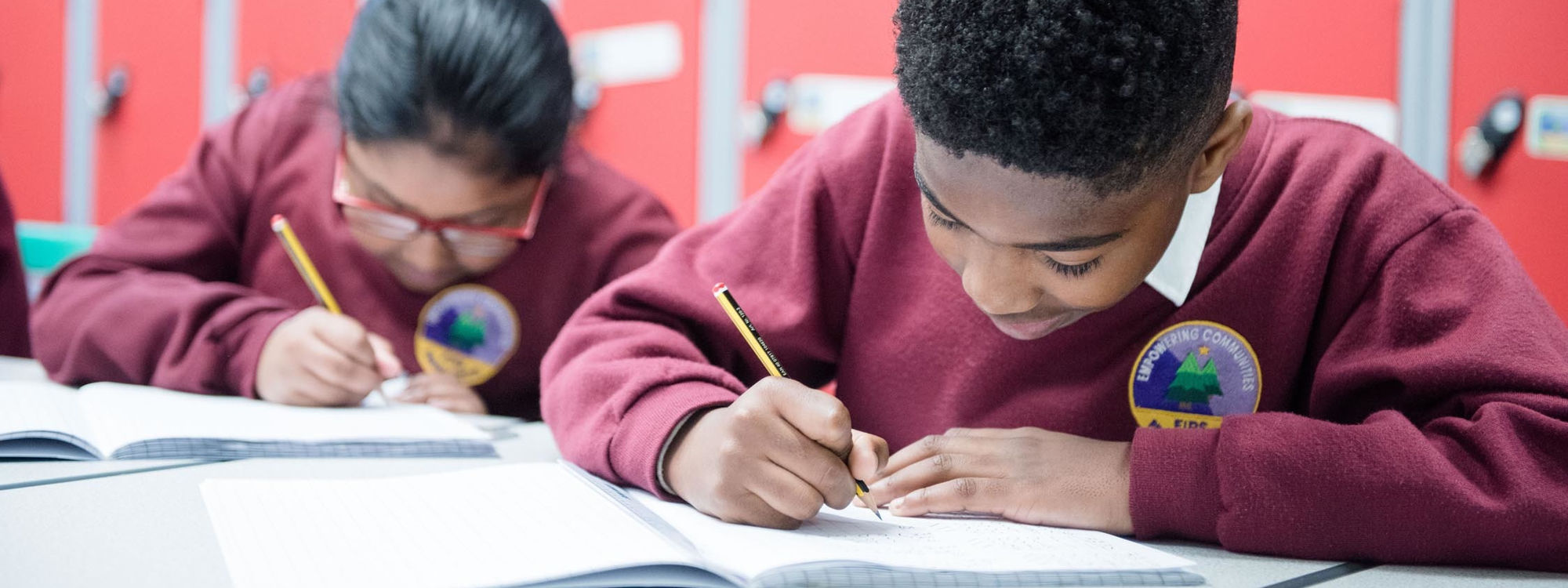- Home
- Curriculum
- Subject Information
- Mathematics
Mathematics
"Mathematics is not about numbers, equations, computations, or algorithms: it is about understanding." – William Paul Thurston
At Firs Primary School, our mathematics curriculum is both ambitious and engaging. We aim to ignite a lasting passion for mathematics while equipping every child with the knowledge, skills, and confidence they need to succeed—both in school and beyond. Our vision is for every pupil to see themselves as a capable mathematician, able to think critically, reason logically, and apply mathematical understanding in meaningful ways—both now and in the future.
Intent
- Empowering learners through mastery: Pupils develop fluency and flexibility with number and calculation through a carefully sequenced curriculum built on small, cumulative steps. Foundational knowledge is deeply embedded before new content is introduced, ensuring secure and sustained progress for all.
- Promoting social justice and future readiness: We believe every child has the right to succeed in mathematics. As a critical skill for financial literacy, employability, and full participation in society, mathematics at Firs is a powerful lever for equity and aspiration.
- Developing deep and connected understanding: Through a blend of concrete, pictorial, and abstract representations, pupils explore, reason and solve problems across all areas of the curriculum. This builds conceptual understanding and mathematical confidence.
- Fostering enjoyment and curiosity: We encourage all children to approach mathematics with a sense of purpose and enjoyment—celebrating effort, resilience, and the creative process of finding solutions.
Implementation
Curriculum Design
- Delivering a coherent and sequenced curriculum: We follow a centrally planned mathematics curriculum that ensures every pupil receives their full entitlement to high-quality, well-structured learning. This consistency promotes clarity, equity and secure progression for all learners.
- Building understanding through small, connected steps: Our curriculum, aligned with White Rose Maths, the DfE Maths Guidance (2020) and NCETM prioritisation, introduces concepts in small, logical steps. This supports the balanced development of fluency, reasoning and problem solving across the year.
- Strengthening fluency through deliberate practice: Number facts and times tables teaching are underpinned by Number Sense Maths, using retrieval practice and structured overlearning to build automaticity. This reduces cognitive load and provides strong foundations for future learning.
- Ensuring consistency with purposeful adaptation: Centralised planning provides shared structure and pedagogy, while giving teachers flexibility to adapt tasks and representations to meet the needs of their class. This maintains coherence without compromising responsiveness.
Lesson Structure
- Maximising learning through clear, consistent routines: Daily lessons follow a structure designed to reduce cognitive overload, strengthen retention and maximise learning time. Regular retrieval and carefully sequenced tasks help secure and revisit key knowledge.
- Using the Gradual Release model to build understanding: Teachers begin with explicit modelling (I do), move to guided practice with scaffolds and precise questioning (we do), and then support pupils to apply learning independently (you do).
- Deepening understanding through representation and variation: Concrete, pictorial and abstract representations are chosen deliberately to reveal structure. Procedural and conceptual variation helps pupils encounter ideas in different forms, make links and apply knowledge flexibly.
Mastery Approach
- A commitment to mastery for every child: We ensure all pupils move through the curriculum together with the support or challenge they need. This approach promotes high expectations, equity and sustained progress for all.
- Embedding fluency, reasoning and problem solving: Mathematical thinking is developed through structured talk, reasoning prompts and opportunities to explain and justify ideas. Regular low-stakes practice strengthens fluency and helps pupils apply knowledge with confidence.
- Developing deep, connected and lasting understanding: Mastery principles guide lesson design so pupils secure foundational concepts before progressing. Over time, they build rich, connected understanding that prepares them for the next stage of learning.
Impact
We measure the impact of our curriculum by bringing together day-to-day classroom evidence and longer-term assessment.
- Checking for understanding in every lesson: Teachers use strategies such as cold call, hinge questions and mini-whiteboards to gain immediate insight into pupil thinking, enabling misconceptions to be addressed quickly and learning to move at the right pace.
- Securing long-term retention through retrieval practice: ‘Do Now’ tasks, fluency recall and regular revisit opportunities are embedded across the week to interrupt forgetting and strengthen memory, helping pupils retain and connect key knowledge.
- Using assessment to inform next steps: Summative assessments across the year evaluate retention, identify learning gaps and guide future planning. When combined with classroom evidence, they provide a rounded and reliable picture of each pupil’s mathematical development.
At Firs Primary, Mathematics is more than just a subject—it is a vital tool for an understanding the world. Our approach aligns with the latest research and best practices in mathematics education, ensuring that every lesson builds a robust, lasting foundation for our pupils’ future.
Firs Vocabulary Progression.pdf

